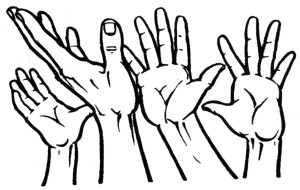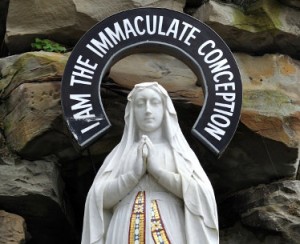
In our introduction to this series last week, we accepted The Sacrifice Challenge, which is a gauntlet, as it were, that has been thrown down by Roman Catholics who believe that the “incense” and “pure offering” of Malachi 1:11 can only refer to the Roman Catholic sacrifice of the Mass. “All the … Fathers … of the primitive ages, teach,” says the Douay Catechism, “that the mass is the self same sacrifice of bread and wine” to which Malachi referred. According to the Douay Catechism, the Sacrifice of the Mass (in which the bread and wine are transubstantiated into the body and blood of Christ and then offered as a sacrifice to God for our sins) is the “pure offering” prophesied by Malachi. Continue reading Their Praise was their Sacrifice (part 2)
 Follow
Follow

